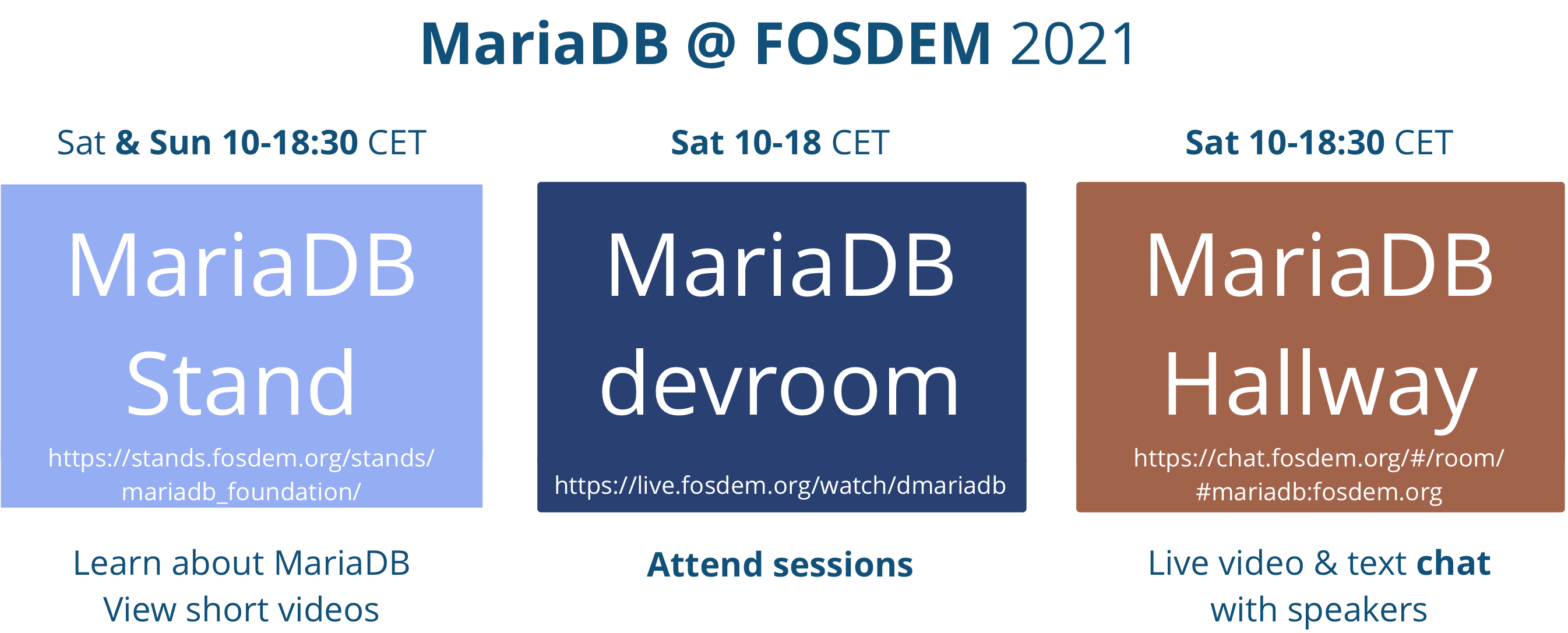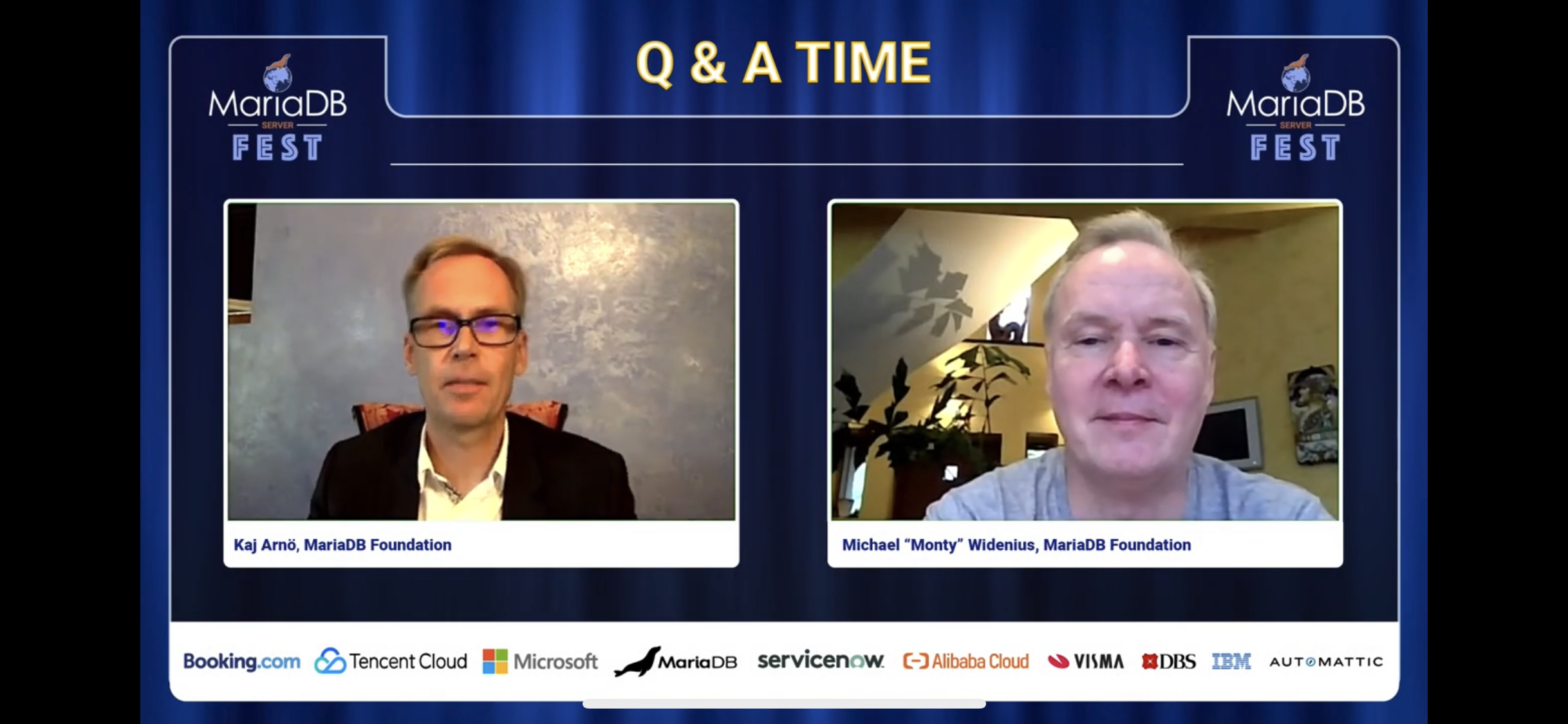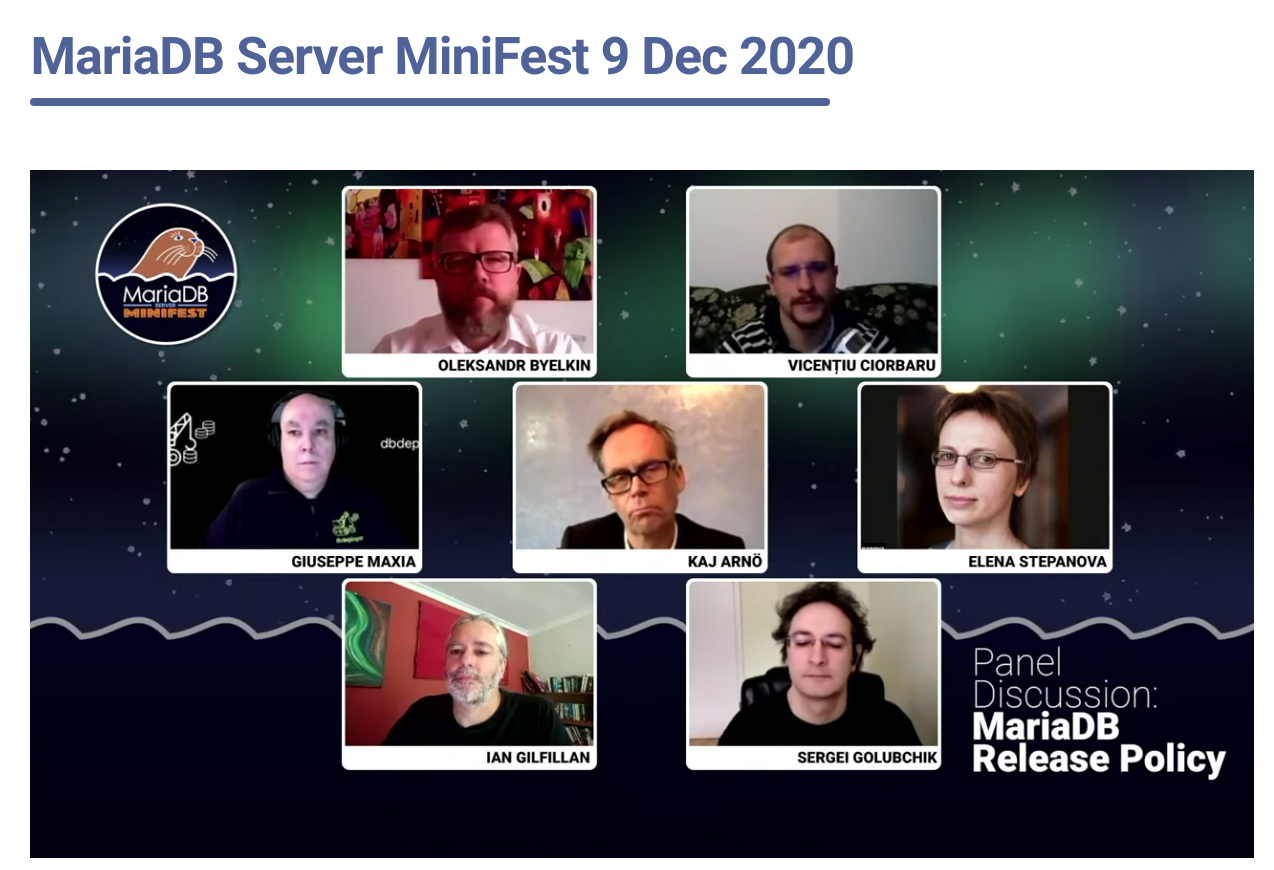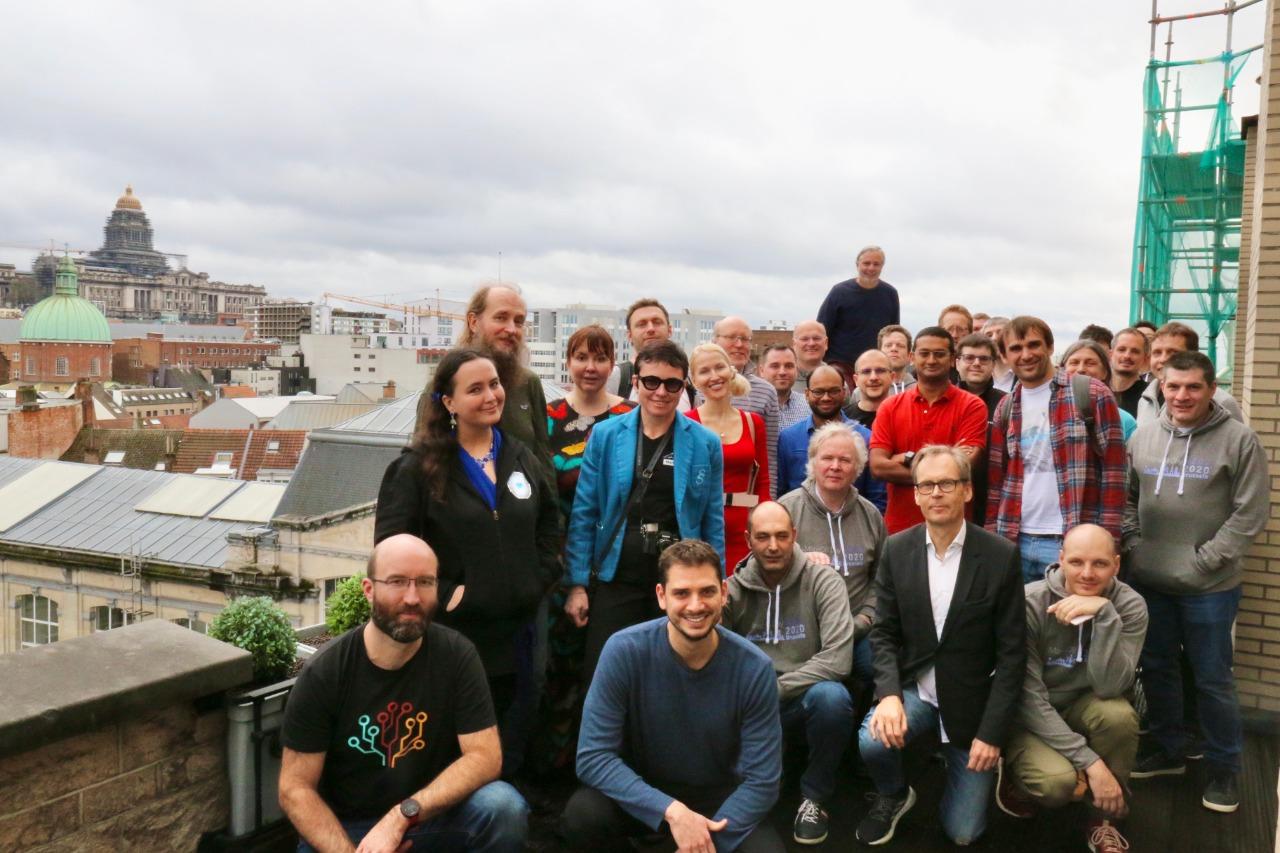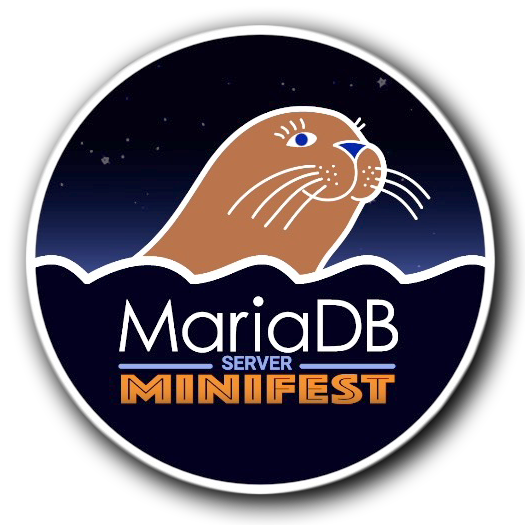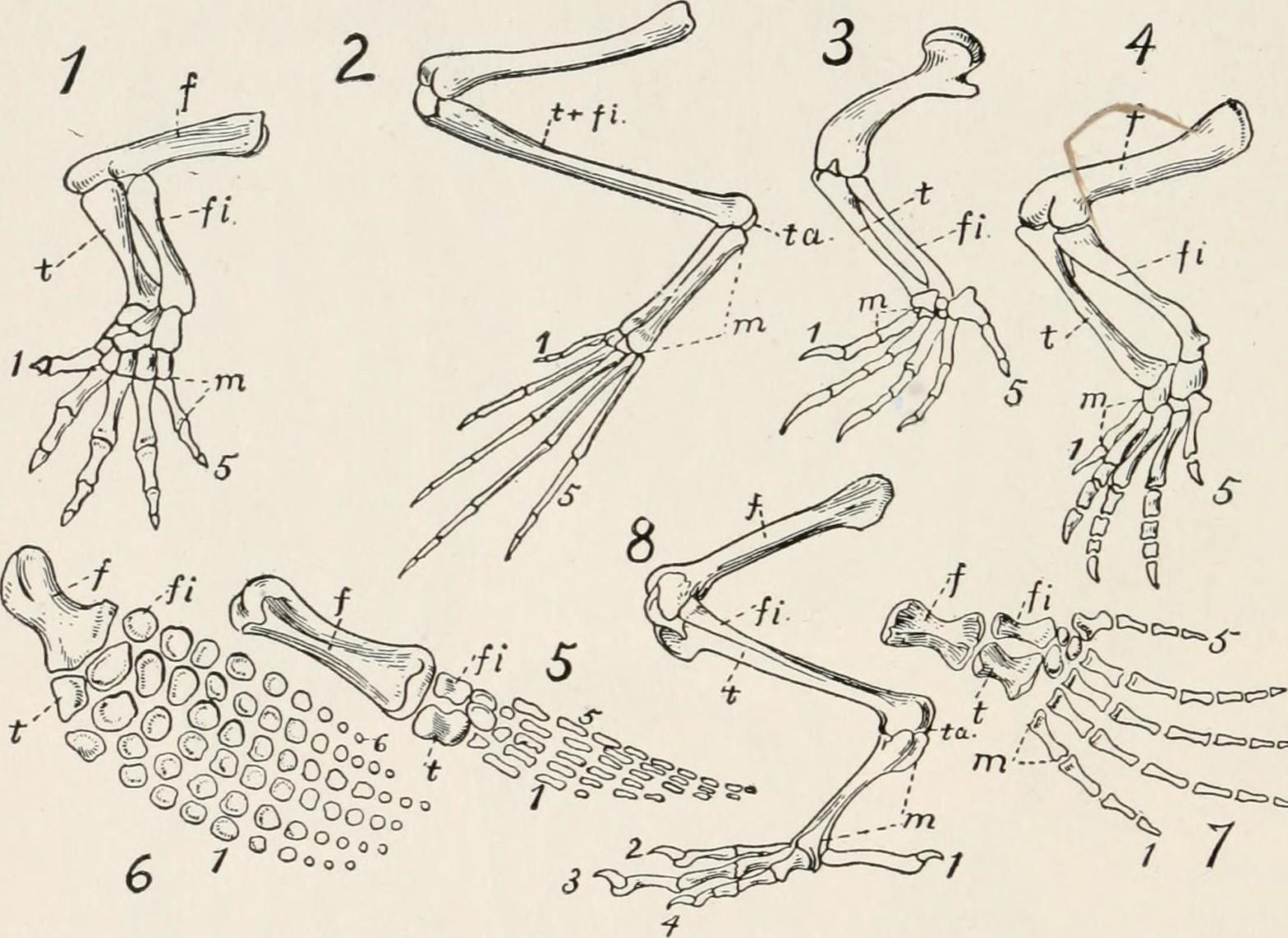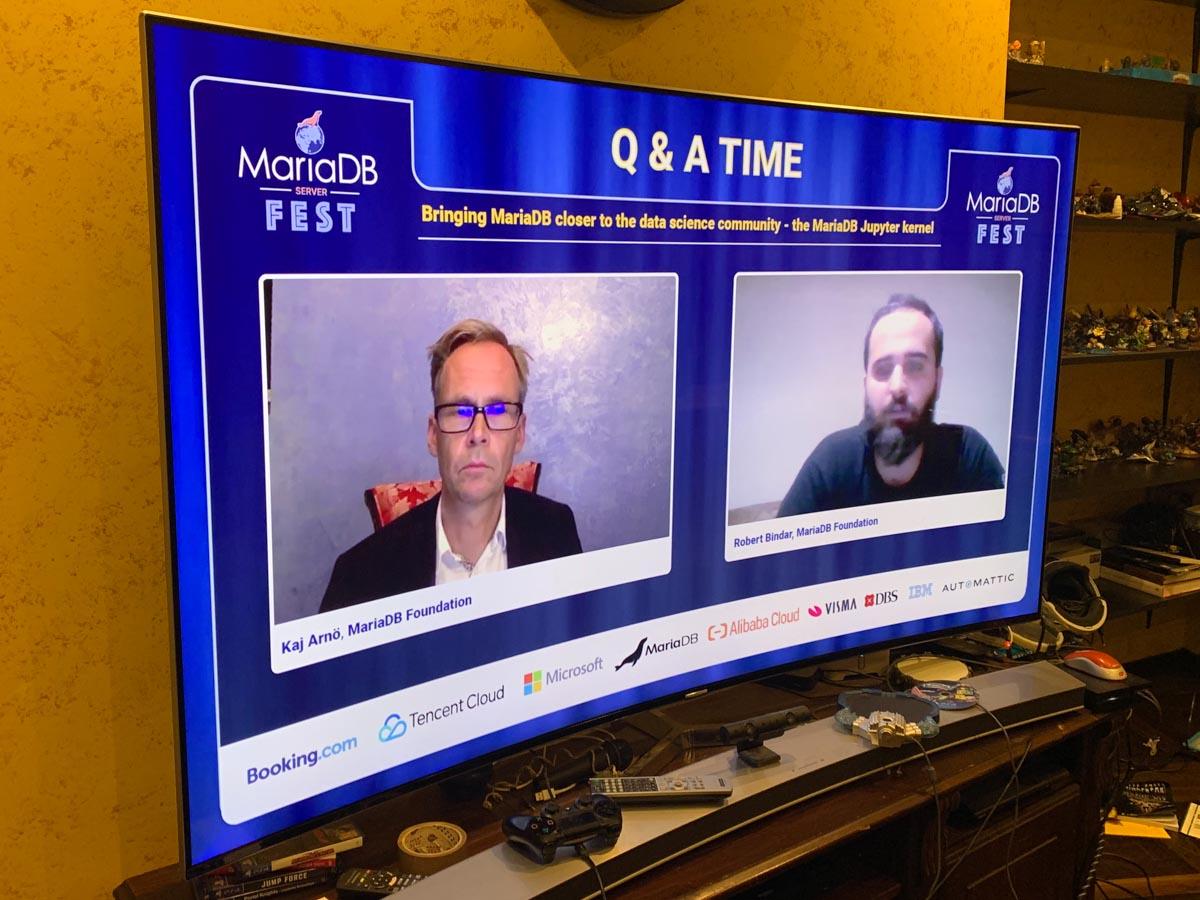Author Archives: Kaj Arnö
Your key URLs on how to attend
- MariaDB devroom: Attend sessions on https://live.fosdem.org/watch/dmariadb
- MariaDB Q&A and Hallway: Text chat during session, and approach the speakers post-session onto the podium on https://chat.fosdem.org/#/room/#mariadb:fosdem.org
- MariaDB Stand: Learn more about MariaDB Server and watch 1-2 min long videos made for FOSDEM on https://stands.fosdem.org/stands/mariadb_foundation/
- Our overall FOSDEM 2021 post: https://mariadb.org/mariadb-at-fosdem-2021/
The purpose of this page
FOSDEM is hard to arrange and attend. Finding your way amongst 8000 people and oodles of buildings and rooms in Brussels is not easy.
…
On the last day of the year, let me share a few thoughts in hindsight on a year that didn’t turn out as anyone expected. The outcome: Not everyone was as lucky as MariaDB Foundation. The pandemic takes longer than expected, and mixes the deck of winners and losers. Sure, most of us lose, a lot. But the forced break can provide lessons for a better post-pandemic life (and business).
Picture: Sanna Marin, PM of Finland, CC BY 4.0 Laura Kotila/Statsrådets kansli 2019 via Wikimedia Commons
Two early pandemic blog entries in March
Background: In March this year (which sometimes feels like yesterday, sometimes like ages ago), I wrote two blog entries about the strange situation caused by the Corona pandemic.
…
At MariaDB Foundation, we have many reasons to be thankful towards all of those who have helped us during 2020.
A few sample contributions
We have recently expressed our gratitude towards contributors in our ecosystem, in 2020. Daniel Black explicitly thanked Tencent for their contributions, and Vicentiu Ciorbaru for the ARM related contributions.
On the same note, Intel has given us access to hardware and software to enable builds using Intel compilers, but more on that once we can release these new builds.
…
Done! Our first MariaDB Server MiniFest is over. A smaller version of our MariaDB Server Fest format, the first MiniFest was about the MariaDB Server Release Policy.
Where to find the recordings
Should you have missed the party, we have recorded the 3:18:45 hours of Best Bits for you, available directly on https://mariadb.org/minifest2020/. The sessions are also available individually, as linked below.
Presentations by MariaDB
We started off by three presentations by MariaDB:
- On Building MariaDB, by Daniel Bartholomew (MariaDB Corporation), with a follow-up interview by Vicentiu Ciorbaru and Vlad Bogolin (both MariaDB Foundation)
- On Merging MariaDB (exact title: Ensuring Build Quality in MariaDB) by Oleksandr “Sanja” Byelkin (MariaDB Corporation), with a follow-up interview by Vicentiu Ciorbaru
- On Security by Sergei Golubchik (MariaDB Corporation and Foundation), with a follow-up interview by Ian Gilfillan (MariaDB Foundation)
The User View
We continued with three presentations by users:
- From a Linux Distribution perspective, by Otto Kekäläinen of Debian, with a follow-up interview by Daniel Black (MariaDB Foundation)
- From a Microsoft perspective, by Sunil Kamath of MSFT, as interviewed by Kaj Arnö (MariaDB Foundation)
- From a Fintech perspective, by Kamalakannan Annathurai of DBS Bank (one of Asia’s biggest banks, in Singapore), as interviewed by Kaj Arnö (MariaDB Foundation)
The concluding Panel
For the concluding Panel on the MariaDB Release Policy, we had asked all speakers and interviewers to be present, which proved challenging – given timezones spanning from Canberra over Singapore across EMEA to the Americas.
…
Great news! MariaDB got its own DevRoom at FOSDEM 6-7 Feb 2021. Usually FOSDEM happens in Brussels, but nobody is surprised that it is virtual this year.
What FOSDEM is
FOSDEM is the biggest Free and Open Source Developers Meeting worldwide. I am sure it remains so in these pandemic times. While I will miss all the many social f2f encounters at FOSDEM, I am looking forward to meeting people virtually.
Separating MariaDB from MySQL
For MariaDB Foundation, this is no small challenge. We will have to establish a Program Committee of our own, when we have so far cohabitated with MySQL.
…
New MariaDB releases come with regular intervals. Releasing a new version is a balance between new functionality and bugfixes on one side, and stability on the other. How do we get optimum quality for the releases? And what exactly is quality, from the point of view of DBAs and developers that use MariaDB Server?
That’s the setting of our MariaDB Server MiniFest in two weeks.
New MariaDB Releases: The DBA & Developer Experience
This MiniFest is called “mini” for three key reasons:
- It has just one topic
- It is much shorter, less than half a day
- It happens just in one time zone
But it still builds on the pillars of success from our MariaDB Server Fest in Sep 2020:
- It features expert speakers on MariaDB Server
- It has pre-recording, subtitles, and follow-up discussions
- It is interactive, with the speakers “cloned” on Zulip chat
The special sauce
The special sauce for this MiniFest is
- Internal presenters explain the logic of release policies
- External presenters give the candid user perspective
- The desired outcome: improved processes and quality
The conference format
The internal (provider) presentations have a 10+10 minute format.
…
We hear you, Kristian Köhntopp! Thank you for taking the time to articulate what many others are probably thinking.
For those of you to whom this sounds cryptic, let me share how I interpreted Kristian Köhntopp’s blog MySQL: Ecosystem fragmentation (https://blog.koehntopp.info/2020/10/28/
mysql-ecosystem-fragmentation.html), published last week:
Kristian noted that the question “Which version of MySQL do you run on?” for a long time hasn’t been merely answered by a simple version number, since there are reasons to perceive MariaDB and Aurora to be “variations to the same theme”.
…
So you heard about the interesting presentations at the MariaDB Server Fest, but didn’t have time to watch them when we were live? Or you have so far seen only a couple of the presentations, but would like some hints at which other presentations are worthy of taking a look at?
That’s the purpose of this blog entry: to help you pick and choose, suggesting what could be interesting for you. All the Server Fest presentations are available on YouTube, with subtitles and Q&A sessions!
Four tips
A first tip: Most presentations have a short five-minute Q&A session.
…
